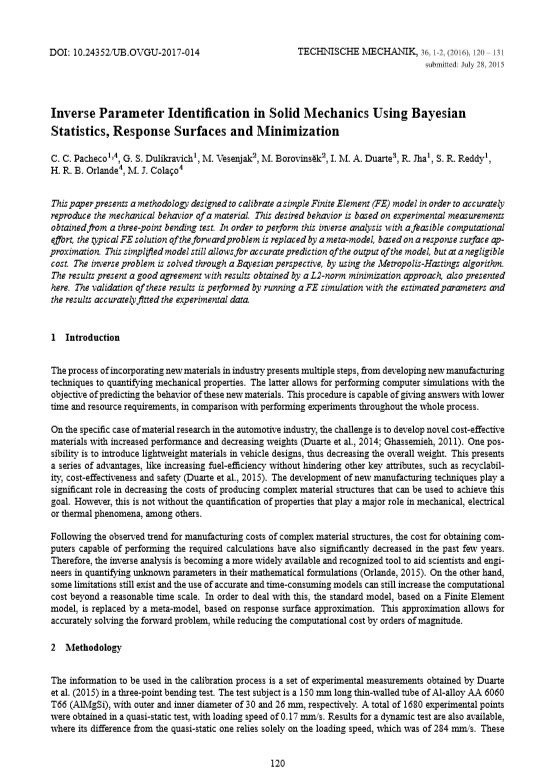Inverse Parameter Identification in Solid Mechanics Using Bayesian Statistics, Response Surfaces and Minimization
DOI:
https://doi.org/10.24352/UB.OVGU-2017-014Abstract
This paper presents a methodology designed to calibrate a simple Finite Element (FE) model in order to accurately reproduce the mechanical behavior of a material. This desired behavior is based on experimental measurements obtained from a three-point bending test. In order to perform this inverse analysis with a feasible computational effort, the typical FE solution of the forward problem is replaced by a meta-model, based on a response surface approximation. This simplified model still allows for accurate prediction of the output of the model, but at a negligible cost. The inverse problem is solved through a Bayesian perspective, by using the Metropolis-Hastings algorithm. The results present a good agreement with results obtained by a L2-norm minimization approach, also presented here. The validation of these results is performed by running a FE simulation with the estimated parameters and the results accurately fitted the experimental data.





